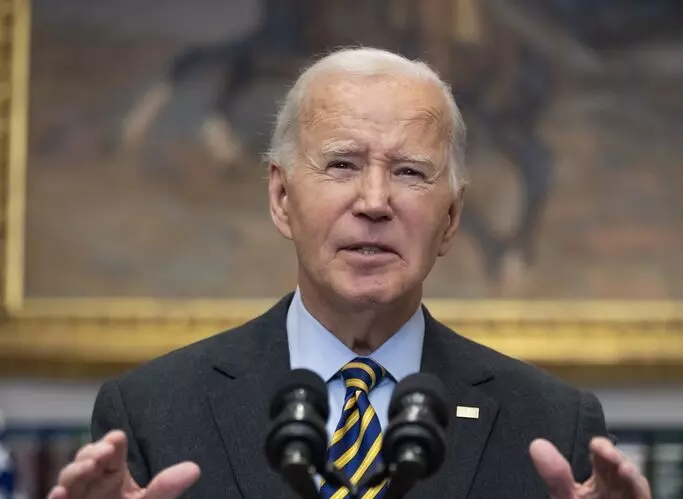
Biden has aggressive prostate cancer that is ‘treatable, but not curable’
When prostate cancers need hormones to grow, as in Biden’s case, they can be susceptible to treatment that deprives the tumours of hormones

Former US President Joe Biden has been diagnosed with prostate cancer, his office said on Sunday (May 18).
Biden was seen by doctors last week after urinary symptoms, and a prostate nodule was found. He was diagnosed with prostate cancer on Friday, with the cancer cells having spread to the bone.
“While this represents a more aggressive form of the disease, the cancer appears to be hormone-sensitive which allows for effective management,” his office said, adding that Biden and his family were reviewing treatment options with his physicians.
Also read: Rising ultra-wealthy oligarchy in US, warns President Biden in his farewell address
An aggressive form of cancer
When caught early, prostate cancer is highly survivable, but it is also the second-leading cause of cancer death in men. About one in eight men will be diagnosed over their lifetime with prostate cancer, according to the American Cancer Society.
Prostate cancers are given a score called a Gleason score that measures, on a scale of 1 to 10, how the cancerous cells look compared with normal cells. The scores range from 6 to 10, with 8, 9 and 10 prostate cancers behaving more aggressively. Biden’s office said his score was 9, suggesting his cancer is among the most aggressive.
Biden’s cancer having spread to the bone makes it more serious than localized or early-stage prostate cancer. When prostate cancer spreads to other parts of the body, it often spreads to the bones. Metastasized cancer is much harder to treat than localized cancer because it can be hard for drugs to reach all the tumours and completely root out the disease.
However, when prostate cancers need hormones to grow, as in Biden’s case, they can be susceptible to treatment that deprives the tumours of hormones.
Also read: Kamala Harris is competent to run again in four years: Biden
Wishes from political leaders
Many political leaders sent Biden their wishes for his recovery.
President Donald Trump, a longtime political opponent, posted on social media that he was saddened by the news and “we wish Joe a fast and successful recovery”.
Biden’s vice-president, Kamala Harris, said on social media that she was keeping him in her family’s “hearts and prayers during this time.” “Joe is a fighter — and I know he will face this challenge with the same strength, resilience, and optimism that have always defined his life and leadership,” Harris wrote.
Extent of decline shielded from public
The health of Biden, 82, was a dominant concern among voters during his time as president. After a calamitous debate performance in June while seeking re-election, Biden abandoned his bid for a second term. Harris became the nominee and lost to Trump, a Republican who returned to the White House after a four-year hiatus.
But in recent days, Biden rejected concerns about his age despite reporting in the new book Original Sin by Jake Tapper and Alex Thompson that aides had shielded the public from the extent of his decline while serving as president.
In February 2023, Biden had a skin lesion removed from his chest that was a basal cell carcinoma, a common form of skin cancer. And in November 2021, he had a polyp removed from his colon that was a benign, but potentially pre-cancerous lesion.
Also read: Complete treatment critical for survival of prostate cancer patients: Study
In 2022, Biden made a “cancer moonshot” one of his administration’s priorities with the goal of halving the cancer death rate over the next 25 years. The initiative was a continuation of his work as vice-president to address a disease that had killed his older son, Beau, who died from brain cancer in 2015.
About prostate cancer
The prostate is part of the reproductive system in men. It makes fluid for semen. It’s located below the bladder and it wraps around the urethra, the tube that carries urine and semen out through the penis.
Outcomes have improved in recent decades and patients can expect to live with metastatic prostate cancer for four or five years, said Dr Matthew Smith of Massachusetts General Brigham Cancer Center. “It’s very treatable, but not curable,” Smith told news agency AP.
Prostate cancer can be treated with drugs that lower levels of hormones in the body or stop them from getting into prostate cancer cells. The drugs can slow down the growth of cancer cells.
“Most men in this situation would be treated with drugs and would not be advised to have either surgery or radiation therapy,” Smith said.
(With agency inputs)

